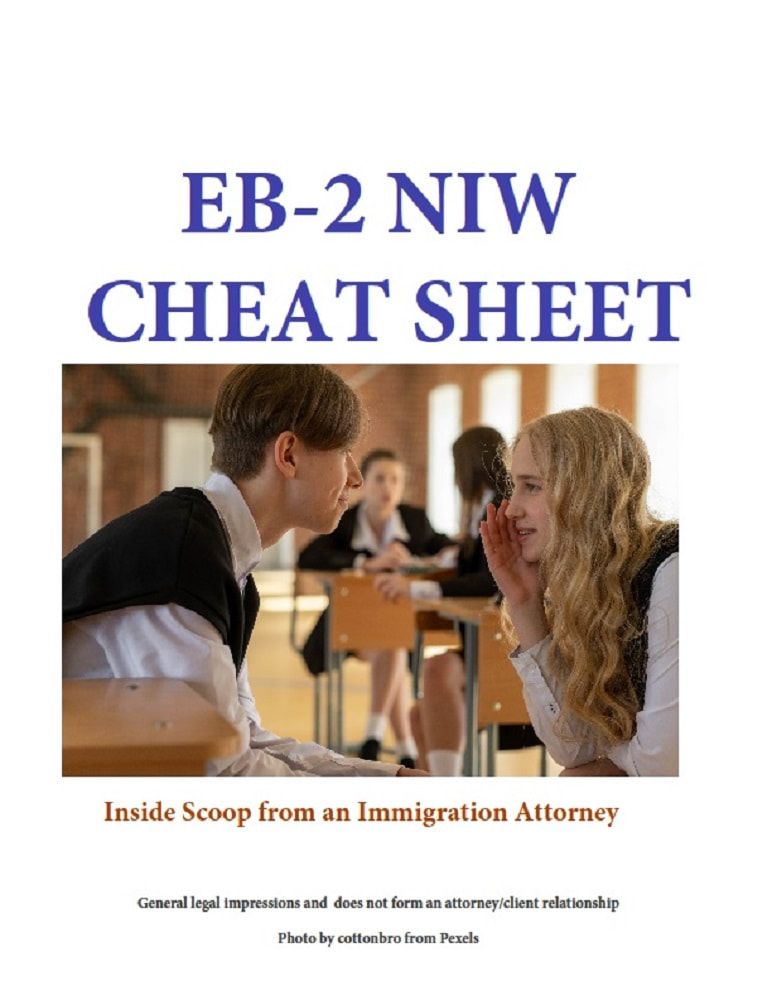 For many foreign national professionals who want to live and work permanently in the United States, the prospect of a National Interest Waiver (NIW) green card is appealing. This is because you do not need to have a job offer nor a labor certification to qualify. One of the factors that the United States Citizenship and Immigration Service (USCIS) considers when deciding whether or not to grant a noncitizen an EB-2 NIW green card is substantial merit. You might be wondering what the term “substantial merit” actually means, as seems to be an ambiguous concept. In this article an EB-2 NIW attorney in the United States explains more about this criterion for lawful permanent residency in this immigration category. Substantial Merit According to Matter of Dhanasar In 2016, the AAO court case, Matter of Dhanasar, provided a three-prong test to determine whether a foreign national might qualify for a second-preference, employment-based green card based on a National Interest Waiver. The three criteria in the test are (1) The proposed endeavor has both substantial merit and national importance; (2) The Beneficiary is well positioned to advance the proposed endeavor; and (3) On balance, it would be beneficial to the United States to waive the job offer and labor certification requirements. According to Dhanasar, substantial merit may be demonstrated “in a range of areas such as business, entrepreneurialism, science, technology, culture, health, or education [. . .] Endeavors related to research, pure science, and the furtherance of human knowledge may qualify […]” Dhanasar, 26 I & N Dec. 884, 889. This standard indicated in the case allows for broad latitude in establishing substantial merit, as it suggests a variety of career areas as well as a range of endeavors. Substantial Merit as Helping Humans One method for establishing substantial merit for the purposes of an EB-2 NIW petition is to illustrate how the foreign national’s work benefits the public. Have they conducted medical research, created jobs, made life easier, or taught the public new concepts? Or perhaps an EB-2 NIW applicant might be entertaining audiences in a novel way or is raising the standards in their field through their accomplishments. For a USCIS adjudicator to find that a foreign national’s endeavors have substantial merit, their work does not necessarily have a global impact. Generally, it just needs to have a great deal of virtue. Knowing Substantial Merit When You See It In the 1964 court case, Jacobellis v. Ohio, the suggestion regarding the definition of obscenity was “I know it when I see it.” Although the concept of substantial merit is at the opposite end of the spectrum, you could likely say that you can recognize it when you observe it, as well. |
Photos from shixart1985 (CC BY 2.0), themostinept, Cold, Indrid, Alexandre Dulaunoy, radkuch.13, Phillip Pessar, SchuminWeb, themostinept, EpicTop10.com, wuestenigel, DonkeyHotey, wwarby, hile, PEO, Assembled Chemical Weapons Alternatives, Aidan Jones, oliff11, Michael C. Rael, Unique Randomness, wuestenigel, Jonathan Rolande, wuestenigel, shixart1985, byzantiumbooks



 RSS Feed
RSS Feed




